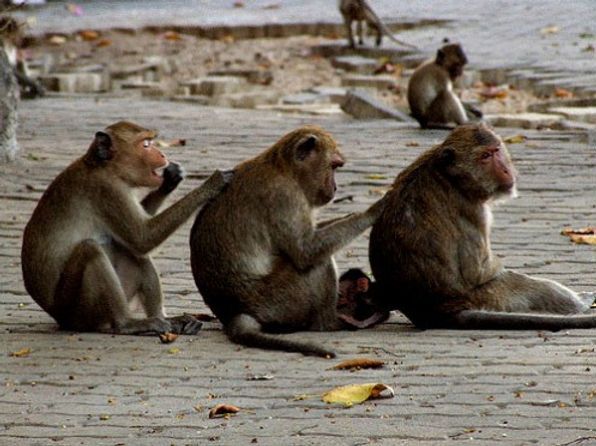MARKET PERSPECTIVE
By J Mulraj
Oct 12-18, 2024
——————————————————-
And start addressing urgent structural issues
Anand Ranganathan is an author and scientist. In this video he pontificates on what a Government is supposed to do. He believes, quite rightly, that the job of any Government is to prepare, skill, and equip a nation’s labour force, and not to use it, by being in business. Immediately after PM Narendra Modi first became PM, he stated so. Sadly, he got sucked into the system and failed to implement his intention of weaning Government out of business. In 1951 there were 5 PSUs (Public Sector Units); now, as per the video, @ 34.00 there are 830, of which 400 are non functional. A budgetary allocation of ₹9 trillion is made annually for these 830 PSUs. PSU divestment in the last decade was ₹4.2 trillion. Why keep loss making assets and not divest faster?
The callous idiocy of the polity is demonstrated in their refusal to recognize the need to shut down Hindustan Fertilizer Corporation earlier. One of the fertilizer plants at Haldia was destroyed in an accident in 1986. Ever since, it’s 1450 employees were paid regular salaries, provided housing and benefits, with zero production of fertilizer. Naturally, it’s net worth was nearly ₹3000 crores in the negative. That’s no way to treat taxpayer money.
The Nobel Economics Sciences Prize was awarded, last week, to Darin Acemoglu, Simon Johnson and James Robinson, for their study on how Institutions are formed and affect a nations prosperity. Sadly, there is too little effort being made to develop ours. Consider the state of some of our institutions and sectors:
The Judiciary: There are 50 million pending cases, a travesty of a system that believes justice delayed is justice denied. See the feeble effort made by the investigative agencies and the judiciary in helping victims of Ponzi schemes. The largest of these was PACL, which collected about ₹50,000 crores. After 18 years, ₹ 1000 crores was paid out to investors who had invested under ₹19000. Last week the ED seized assets worth ₹29 crores in the Pearlvine scam. At its height, it boasted of 80 lac investors, with a minimum fee of ₹2250. That’s ₹ 1800 crores. The land seizure is less than 2%. Similarly, last week a paltry ₹5 crores was refunded to victims of the Rose Valley scam. That’s 0.3% after a decade! Unless judicial reforms are very urgently initiated, the India story will be watered down considerably.
Agriculture: As per the Economic Survey, 42% of India”s population is dependent on agriculture, (for want of better opportunities) but generates only 18.2% of India’s GDP. This is largely due to absence of mechanized farming, because of small land holdings. Inheritance reduces land area. So, terms of trade disfavor farmers. And, because of small land holdings, productivity is low. Indian farmers grow 45% of the global best crop for wheat, and 25% for maize. They French have to resort to local moneylenders, at usurious interest rates. A crop failure results in farmer suicide! As 81% of crop land is uninsured.
Thanks to political interference, the cropping pattern is wrong. For example, there is no case for producing sugarcane, a water guzzling crop, in water scarce areas like Maharashtra. Sugarcane uses 9% of arable land but sucks up 72% of potable water! The sugar industry is the most regulated. Farmers are tied to supply cane to particular mills within a radius, the selling price of cane, and of sugar is controlled, with the State as well as the Centre declaring their own minimum price, the quantity of sugar released to market is also controlled.
India is #2 global importer of chemical fertilizer, importing 18 lac tpa of urea and 22 lac tpa of phosphatic and potassic fertilizer a year. The refusal of Indian agri products into USA is 7X China.
In effect, agriculture has the largest labour force of any sector, its contribution to GDP is low, because of low productivity, cropping patterns are sometimes dictated by politics rather than farmer choice, farmer suicides are rampant, and there is an urgent need to revamp policies for this sector, too.
Education: Our education system is appalling. A whopping 150 m. children do not have access to primary education (that’s more than the populations of Germany or France or UK); and 250 m are below the primary definition of literacy, according to Dharmendra Pradhan, Union Education Minister. As per Anand Ranganathan, 48% of all graduates from our universities are unemployable (not skilled enough to get a job).
Instead of concentrating on how to engineer political elections in order to topple Governments, should the polity not spend time on how to fix an education system that does not deliver?
Politicians are, sadly, focused on mutual back scratching instead.
There are a lot of fixes to be done in other sectors like healthcare, corruption, social security too.
The Government has a Viksit Bharat @ 1947 vision, (100 years after independence) of becoming a developed economy with a GDP growth forecast from $3.4 trillion to $30 trillion. To be a truly developed economy it will need to strengthen its institutions, its social parameters and ensure that governance is for the benefit of the people and not for the polity.
A recent World Bank report highlighted that 129 m Indians still live in extreme poverty, down from 431 m. in 1990. A commendable achievement, without a doubt. This, however, is based on a lower poverty threshold of $2.15 per day; if the threshold for ‘middle income’ economies of $6.85 /day is used there are many more.
The GDP is affected adversely by the factors mentioned above, due to over employment in agriculture, low productivity in agriculture and in industry, abysmal private education, no investor protection, and such factors.
PG Wodehouse once dedicated a book to his wife without whose help, he said, it would have been finished in half the time!
One can say that about successive Governments, without whose ‘help’ India would have become a developed country in half the time.
One hopes that governance now improves, and serious structural problems are tackled and strong institutions are built.
Last week the BSE Sensex was flat, ending the week at 81006 .
The upcoming events investors should keep an eye on are the Middle East situation between Israel and Iran + proxies and on the US Presidential elections just three weeks away.
And the Indian polity should focus on scratching out thousands of regulations that impede growth, after freeing their fingers from scratching backs.
Picture Source: https://nikkicu44.wixsite.com/mysite/single-post/2016/03/04/you-scratch-my-back-i-wont-scratch-yours
Comments may be sent to jmulraJ@asiaconverge.com










































COMMENTS